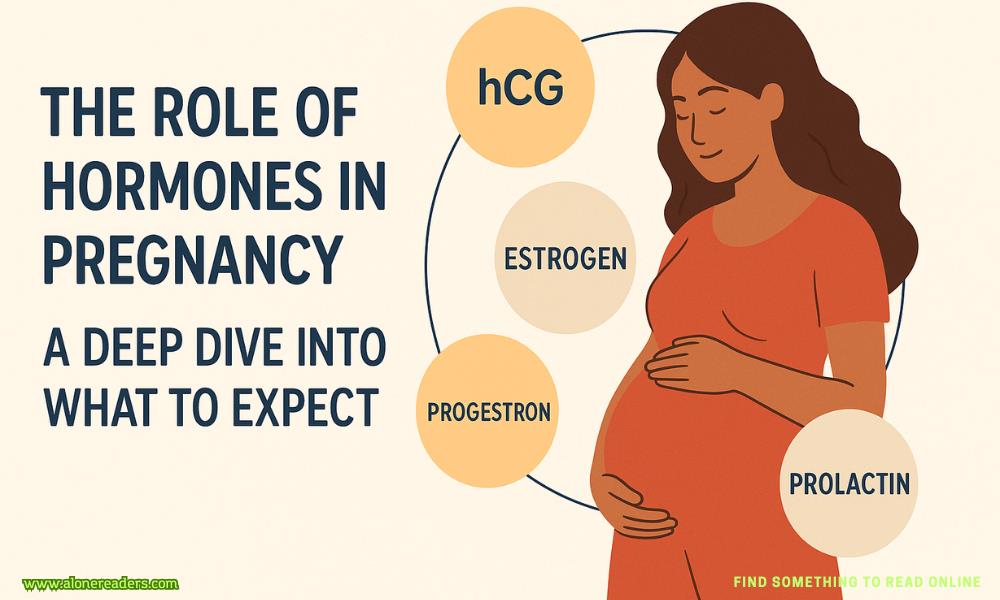Page 8 of The Women at Ocean's End
4
May 1957
Dotty Wren
Their home had always been different from the Mackens’.
It felt, to Dotty at least, as if her parents had been bundled in rigidly one night while they slept and woke the following morning only aware of a certain tightness about them which they spoon-fed to Dotty so it was internalised long before she could decide to be any different. It materialised in unfinished sentences, in things not said, unlike the Gillespies who regularly had huge shouting matches from one end of the road to the other. In the Wren home, the important things were held on the in-breath, making every second on the kitchen clock tick more loudly, every sigh laboured with heavy consequence. Perhaps it had crept through the slightest open crack in a window, stolen silently and sat in a corner, casting invisible shadows across each of them. It wasn’t in the walls or on the breakfast table. God knew, her mother did a good enough job scrubbing and polishing every surface of the house so, unlike at the Mackens’, there was never a lingering smell of last night’s dinner to be found. This wasn’t just an aroma; rather it was stitched deeply into the fibres of them. It sat there, as easily in unspoken sentences as it did in meaningful glances; it crackled on the rustle of her father’s paper as carelessly as it did on the vinegartartness of her mother’s gleaming windows. Three people, living together and all treading softly so as not to arouse something that silently threatened to swallow them; or at least that was how it felt to Dotty.
Dotty might not have been sure of how it came about, but she was pretty certain that it had something to do with her father. Norman Wren was a hero. Everyone said so, he’d fought for King and Country, although, as Mrs Price was quick to point out, it wasn’t her King or her Country. Her mother, Sylvie, who hardly ever had a bad word to say about anyone, said quickly in low tones,let you not be heeding Mrs Price.He even had a medal for it.Which is more than Albert Price has to show for all his years turning out for the IRA.The medal – the African Star – was a heavy star with a crown on the front and ‘N Wren’ inscribed on its back. It sat in proud repose in the small glass cabinet in their front room. From what Dotty could gather, her father had been given it for being brave.Or just for showing up, if you were to listen to Mrs Price. Anyway, it didn’t matter, the fact was that her father was different to every other father on their road. For one thing, he was older. For another, he dressed smartly,dapper, Mrs Price said, although Dotty wasn’t sure this was a compliment. Unlike the other fathers along the road, her father worked in a shop, selling fancy men’s clothes topeople who had more money than sense, or at least that’s how her father described it.
Her mother by comparison was not so dapper. She was country stock and hardworking, happy to have a house and a husband to be proud of and a daughter who was no bother. She was younger than all the other mothers on the road, although mostly she didn’t look it. Unless they were going to mass, then she would wear her best woollen suit which cinched her tiny waist, smart black shoes and the precious silver clip against which her hair gleamed blacker than a raven’s feathers. EachSunday she carried a small bible in her hand that was well thumbed even though she could only read the short words. Still, no-one else knew that. Dotty noticed that people did a double-take when they saw her all polished up; it was as if she emerged from the grey shell of everyday life, a pearl just visible before the oyster snapped shut for another week.
‘Beauty never boiled the pot,’ her mother said when she caught Dotty staring at her reflection in the mirror that hung inside their front door. They were so different, Sylvie and Dotty, in spite of the fact that everyone agreed that they werethe spit down of each other. If Dotty had been allowed, she’d have worn her mother’s silver hair grip every single day. She’d decided early in life that she would not keep things for good when she grew up. She would be glamorous always, not just for mass or funerals or special occasions.
Maggie Macken was one of those women. Instead of a husband, she had a career. Just a few weeks earlier, she’d been in the local papers, her picture and her words. She was going to have a book in every shop in Ireland. All that tap-tapping had finally paid off, it seemed. Dotty thought she’d die of happiness if her picture was in the paper. Mrs Macken didn’t care if the kitchen table was cleared after dinner, she couldn’t give a hoot if her doorstep was covered in weeds and the talk of every other housewife on their road. She’d told Dotty there were more important things in life than caring whether the nuns approved of the length of your skirt or not.
For her part, Sylvie was neversureabout Mrs Macken. ‘Wouldn’t trust her as far as I’d throw her, anyone’s husband is fair game with that one’, Mrs Price said in tones not quite low enough to escape Dotty’s keen ears. ‘You want to watch your Norman around her.’ But that comment had sent her mother into a fit of hysterical laughter, the likes of which Dotty had never heard before or since.
That was the thing about being twelve, there was so much you heard, some of it you understood, but the most interesting bits always seemed to be held in the words that adults never actually said.
Still, her mother liked Constance Macken very much; far more than Lickey Gillespie or any of the other kids on their road. Of course, Constance and Dotty were practically the same age, although you’d never know it because Constance was tiny whereas Dotty had already grown breasts her mother encouraged her to hide beneath clothes that were too big. ‘You don’t want the boys making fun of you, do you?’ she said once. ‘Time enough you getting married when you’re a lot older than I was’, she said often, always hastily adding as if to confirm for herself, ‘not that I would change a thing.’ Recently, Dotty had taken up her parents’ wedding photograph from where it sat on the glass cabinet and examined it. They were a striking couple, she with her wide eyes and thick black hair and he in his uniform, pressed and proud – he was older, quite a bit older when you looked properly. Sylvie looked as if she’d only just made her confirmation, but that couldn’t be right because girls of thirteen or fourteen couldn’t get married, not even just as the war was ending, no matter how different times had been back then.
That day, the day Dotty had looked at the photograph, had somehow tipped over the atmosphere in her home, even though she had no idea at the time that one simple thing could change everything. It was that photograph and the idea that really, there hadn’t been more than a few years in the difference between her mother then and her now.
Her mother’s wedding dress had been a simple lemon tea dress with a fitted bodice and a skirt that just passed her knees. It was still hanging in the wardrobe over a decade later, never taken out or looked at, never mind actually worn. Suddenly,Dotty had felt herself drawn to it. She raced upstairs, let herself into her parents’ room and took it carefully from the wardrobe. Her mother had wrapped it up in a delicate weave of soft tissue paper, typically doing her best to keep it as near to pristine as possible. It took a few minutes to figure out a way to liberate the dress without damaging her mother’s handiwork, but when she did, she held it before her for a moment. It looked exactly her size. It smelled faintly of her mother, but more of her father, whose overwhelming scent of silver mints and shaving soap travelled before and after him wherever he went. The fabric was like nothing else hanging in any wardrobe in their home; a softer, silkier version of her mother’s best Sunday blouse, Dotty imagined it must feel like being wrapped up in a golden cloud. Suddenly, she was unpeeling her own clothes, letting them sit where they fell and slipping into the dress easily. It felt strange, grown-up, illicit. Incredible. She looked down the line of her body, bent sideways and leaned back, closing up buttons which she assumed had last been closed by her grandmother on Sylvie’s wedding day. Oh, she could have stood there for hours enjoying the feeling of the fabric against her skin, it was so different to the layers of cotton her mother made her wear to stop the boys noticing her now firmly protruding breasts. She peered out over the net curtains on the window. There was nobody about. Her parents had gone to visit the graveyard earlier for a small ceremony in remembrance of a comrade of her father’s who had not managed to win a medal. Indeed, he had not even managed to make it home to the graveyard, but there was a headstone and there would be flowers.
Dotty cast the idea of the sombre afternoon her parents would be putting in aside and raced down the narrow stairs to the mirror that hung just inside their front door. She stood there for a long while, taking in her own reflection. Her hair, shorter than her mother’s, had the same shine to it. Her eyes, a littlegreyer, were just as wide. The dress fitted perfectly. She threw her shoulders back, pouted her lips to make a face that felt not quite as childish as her own. She looked grown-up, all grown-up, like a woman who could do anything in life, be anyone she wanted to be, have a great adventure if that was what she felt like doing. She felt, for almost a whole minute, that one day she could be the sort of woman Maggie Macken had become and that was thrilling to her then.
The groan of the front gate almost threw her off balance. Her mother, pushing it out carefully, was, as usual, four steps behind her father, turning his key in the door. Oh God, Dotty thought, her mother would be livid. Though, she wasn’t sure why she thought that, because her mother rarely got cross with her. Generally, they got along very well and if there was a reproach, it was issued with kindness and in gentle tones.
‘Dotty?’ It was her father’s reaction that surprised her most.
‘Sorry, Daddy, I was just…’ She backed away from him, suddenly shy beneath his penetrating gaze.
‘Well, well, well,’ he said and he stood for longer than was comfortable for any of them, gazing at the dress that Dotty supposed must have the happiest of memories for her parents.
‘Dorothy Wren, what are you wearing?’ her mother whispered. Her voice, a thin streak across the narrow space between them, wobbled, a rogue nerve playing havoc with the corners of her mouth. Dotty could see her mother’s face was ashen, as if she’d seen a ghost. ‘Upstairs now, this instant. Take it off and put it back exactly as you found it.’
‘Ah, now, Sylvie, sure you can see yourself, she’s hardly a child any more, let her be, if she wants to be a grown-up…’ Her father smiled and pulled Dotty towards him for a moment. ‘Your mother’s wedding dress, eh?’ He halted and seemed to breathe her in, but Dotty was glad he was not cross with her at least.
‘She’s not a grown-up, Norman, she’s just a child,’ her mother snapped.
‘I’m so sorry, Mammy, I didn’t mean to, I just… you were so beautiful in it and I wondered…’
‘Hmph,’ her father said and then he held her at arm’s length for a moment, his eyes carefully running up and down the dress, as if seeing it for the very first time. ‘Dotty.’ He said her name then, slowly, as if relearning it from a long time ago. It was one of those times when, in spite of the fact that she might look grown-up, Dotty knew that a lot more had been said in that one word than she understood.
‘Go on with you,’ her mother said and her voice sounded as if she had somehow been defeated once again in that narrow hallway that she spent so much time scrubbing clean. And somehow, Dotty knew that all the scouring in the world would never quite make things as spotless as her mother craved so deeply.
5
Constance
As always, it was a relief when the doves swooped into the garden to watch her fill the bird table. Constance found herself smiling, as if two old friends had turned up to stop her thoughts from wandering down dead ends that had nothing to recommend taking them. She had grated breadcrumbs the evening before while the bread was still at its freshest. It sat now, waiting for her in the little covered saucer.
Although the morning looked sublime, with lemony spring sun picking out green shoots and occasionally glinting on the puddle that Constance liked to think served as a bird bath, it was much colder than she had expected. She almost immediately regretted not taking the time to put her coat around her shoulders before she pushed through the back door. It wasn’t so much the sea breeze, rather the temperatures must have dipped to below zero overnight, because now, she realised the path glistened with an icy sheen. She would need to move slowly, hang onto the rail that the bossy district nurse had insisted on at the end of the previous summer.
It was early yet. It felt as if she was the only person in the world, or at least on this side of the island, to be up and about at this hour. Constance adored the stillness of mornings like this, where even the crunch of a dead twig beneath your feet held within it the potential to echo as loudly as the ocean in the distance. She looked towards the small veranda that dippedout over the back of the house. It was the doves’ favourite place to perch while they watched her divvy out their breakfast. She smiled up at them, noticing how fattened up they looked thanks to their ruffled feathers. Oh, but it was cold. She turned again and began to spread the crumbs across the table, separating them with her thumb when she’d finished so the smaller birds would have a shot at the leftovers. Usually, she stood inside the kitchen window and waved her arms about like a mad thing if she saw the big old crows come towards the table.
- Daddy's Dirty Little Secret by Sofia T. Summers
- Sofa King Safe by Alexa Riley
- A Touch of Fate by Cora Reilly
- Mercy by Elizabeth Knox
- Veiled Vows by Ajme Williams
- Bending Over for My Tw!n by J. Snow
- Double Mountain Men by S.E. Law
- Fierce Vows by Jade Marshall
- Snowed in with the Mafia by Chloe Kent
- Claimed By a Knight by Lena Little
- Choke by Mila Crawford
- Stolen Princess's Secret by Kelly Hunter
- Wicked Games by Willow Dixon
- All Jacked Up by Abbi Glines
- Scatter the Bones by Autumn Jones Lake
- Need You to Choose Me by B. Celeste







